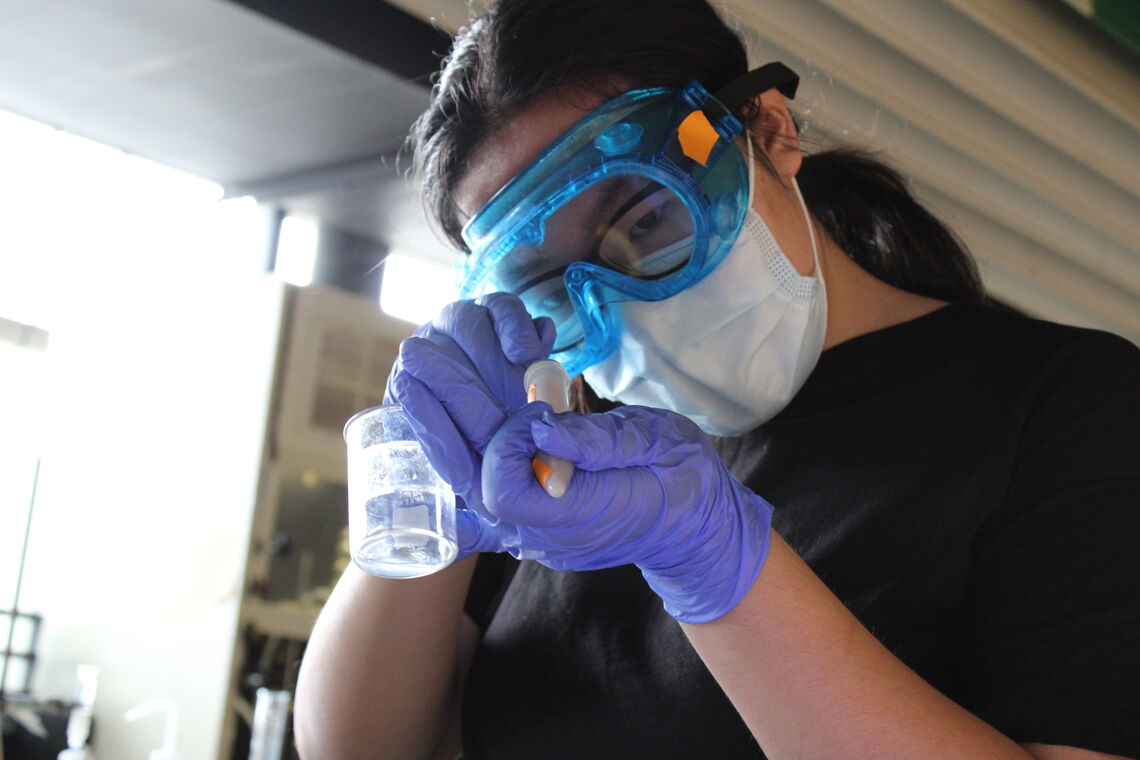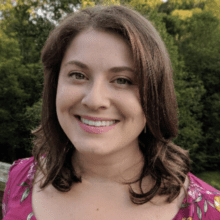
There are no grades in Summer Research and Innovation Programs (SRIP) at North Carolina School of Science and Mathematics (NCSSM). Students are there to learn how to do research, get the data they can, and potentially submit research to competitions or journals.
Another hope, however, is that they ultimately learn the love of intellectual curiosity.
“You can’t grade research,” said Bob Gotwals, an instructor of computational science. “How do you grade intellectual curiosity or work ethic? The first thing I say (to the students) is there are no grades. That’s liberating.”
That liberation allows students to embrace the unknowns and begin to learn to sit with failure and seek out creative solutions as they problem-solve.
The SRIP enables rising seniors from NCSSM’s residential and online programs to come to the Durham campus during the summer and take part in intensive and immersive research experiences.
NCSSM offers SRIP at no cost to students, and the programs afford uniquely rigorous academic work punctuated by independence and freedom that students have rarely experienced at this point in their academic careers — and that many students never do before graduate school.
While students are exploring topics that extend from innovative approaches to monitoring lupus, to researching the connection to community and place in rural Appalachia, to modeling air quality dispersion, they are researching topics they care about for fun and/or for intellectual satisfaction.
“It’s okay to fail, and to learn from your failures,” says Clara Smith, a residential student from Cornelius, North Carolina. “Understanding that once you do fail that your research will get better is important.”
Students in both the residential and online programs at NCSSM are accustomed to high-achieving academic careers, so being in an academic environment where failure is an expected part of the process is a novel experience.
“It’s a completely different experience for them to just be able to explore and be curious instead of having a grade,” explained Keethan Kleiner, an instructor of computer science. “They are just trying things instead of focusing on some sort of finished end product.”
Students are empowered to take their time and lean into learning, even when they know that their avenues of discovery will not always lead to the desired outcome.
“During the summer we are really able to hone in and focus on our stuff,” said Lydia Owens, a residential student from Raleigh, North Carolina, who is taking part in the Summer Research Experience in Computational Science program. “I think I learned more just from having time to sit around and read and think for a moment, and to take a step back from my project, than if I was constantly trying to meet deadlines during the school year.”
Makena Neale from Davidson, North Carolina, is participating in Glaxo Summer Research Program in SRIP. From her perspective, this mindset shift on failure is a defining feature of the program: “Get ready to fail,” Neale said.
“You’re going to go into this program with probably some high hopes and high ideas seeing what other people have done. But you have to be able to fail. Otherwise, you’re not going to learn anything in this program. The entire idea behind it is once you fail you can try again and succeed. You have to be ready and willing to learn,” she said.
Embracing failure and learning to engage with academia with a sense of curiosity is what drives Dr. David Cantrell, an instructor of humanities, during SRIP. “I am wanting to create within [students] a critical and creative disposition that will serve them for the rest of their lives, particularly for the next five or six years of their academic lives,” he said. “To truly give them a sense of what can be done, what is out there to be known, and what is out there to be discovered.”
Throughout the program, students begin to experience new kinds of achievement and success.
“Failing is kind of fun,” Neale said. “Because when you actually succeed, it makes you feel better about it because you know you did this. It wasn’t anyone else’s. It was your success that you get to take with you.”
SRIP, historically hosted at the NCSSM-Durham campus, will expand to include new offerings at the NCSSM-Morganton campus in 2023. Special thanks to NCSSM, the NCSSM Foundation, the Burroughs Wellcome Fund, and GlaxoSmithKline for funding the SRIP.
